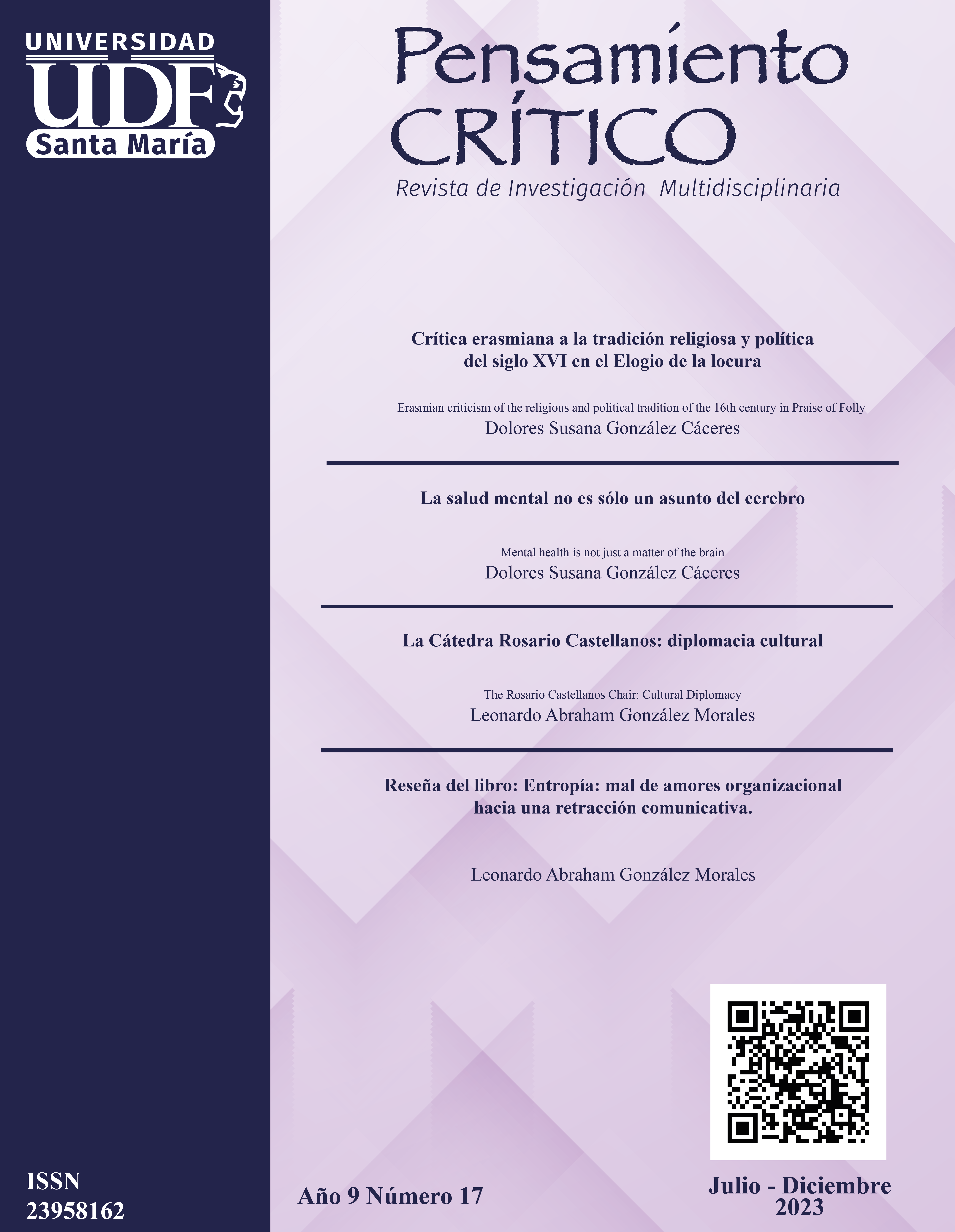Abstract
This article will explain what Erasmian criticism of the religious and political tradition of the 16th century consists of through Erasmus' most recognized work, In Praise of Folly (1511), with the aim of maintaining that this book stands out for being one one of the first to deal with the topic of madness, it is also a relevant philosophical text because in addition to the fact that its originality lies in the authentic treatment that Erasmus carries out of the notion Stuttishness, it highlights the fact that the thinker uses said analysis to present in a highly original way his philosophical theses, which together make up his criticism against both the excesses of the religious and the politicians; in addition to the lack of the exercise of virtue in the lives of individuals.
References
Encyclopaedia Herder (2023, 28 de noviembre). Locura. Herder Editorial. https://encyclopaedia.herdereditorial.com/wiki/Locura
Erasmo (2011). Del desprecio del mundo; Enquiridión; Elogio de la locura; De como los niños precozmente y desde su mismo nacimiento deben ser iniciados en la virtud y en las buenas letras de manera liberal; Lamentación de la paz; Coloquios; De la urbanidad en las maneras de los niños; Preparación y aparejo para bien morir. (Intrd. J. Bayod & J. Parellada). Gredos.
Bayod, J. & Parellada, J. (2011). Erasmo: “Elogio de la locura”. Gredos.
Fischl, J. (2010). Manual de Historia de la Filosofía. Herder.
Halkin, L. (1992). Erasmo. Fondo de Cultura Económica.
Sáez, F. (2012). Locos de entremés: la locura como elemento y motivo argumental en el teatro cómico breve del Siglo de Oro. Biblioteca Virtual Miguel de Cervantes.

This work is licensed under a Creative Commons Attribution-NonCommercial-NoDerivatives 4.0 International License.
Copyright (c) 2025 Pensamiento Crítico. Revista de Investigación Multidisciplinaria

